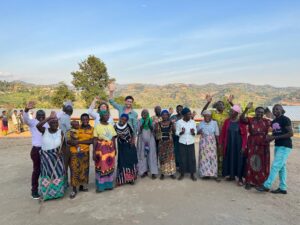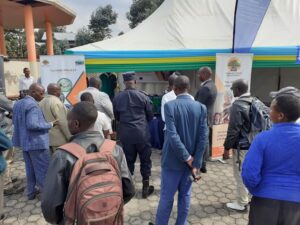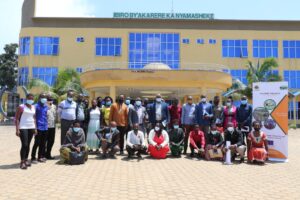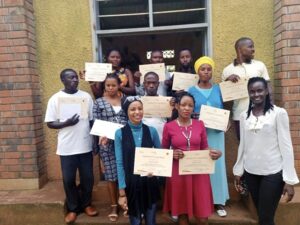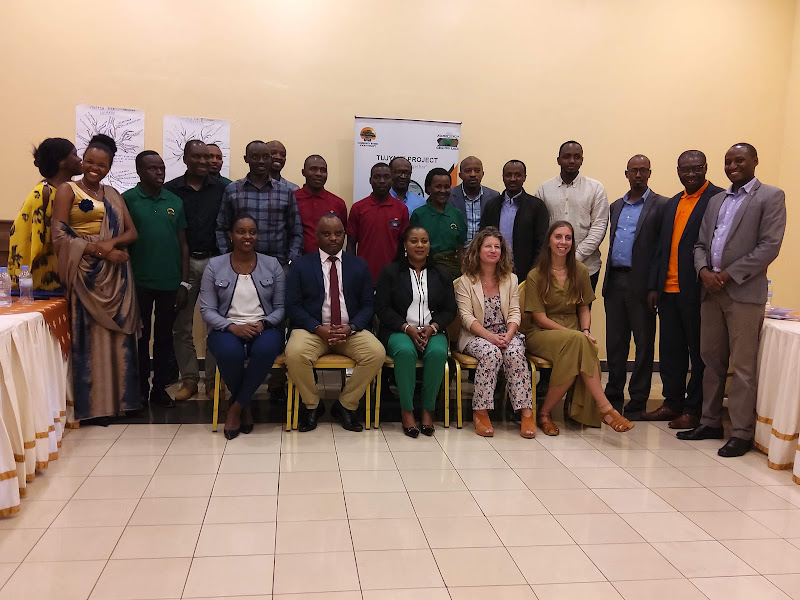
By Felibien Hirwa Tuzayisenga
The Tujyane project [Let’s Go Together]: was a 27-month-project, funded by the European Union. The project successfully closed in the last month, in September 2022. Two closing events were organized. The first event was organized on the 28th of September, organized at Beauséjour Hotel in Kigali. This event brought together different civil society organizations, the implementers, Radio La Benevolencija (RLB) and Community Based Sociotherapy Rwanda (CBS Rwanda) and representatives of the European Union, to discuss the project outcomes and lessons learnt. The second closing event took place on the 30th of September in Nyabihu district, with the trained sociotherapists.
At the event in Kigali, Michaela Thomas, the Head of Cooperation at the European Union Delegation of Rwanda, commended the work done under this project and highlighted the uniqueness of the project implementation approaches deployed. In the Tujyane project the community-based sociotherapy approach (Mvura Nkuvure), was combined with behavioral change edutainment through RLB’s Musekeweya Radio Drama.
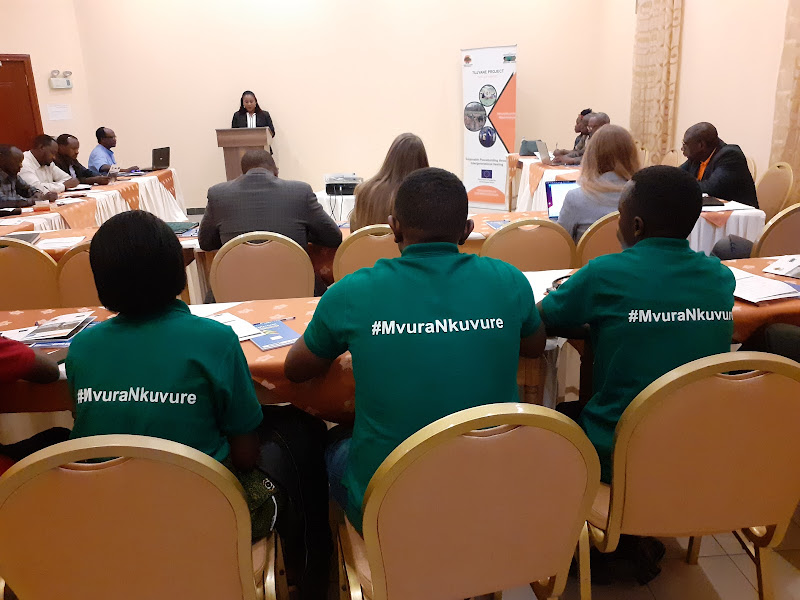
Musekeweya and its related grassroots outreach activities, were designed to increase knowledge and understanding of the effect of historical trauma on social cohesion and to increase the ability to recognize and resist destructive ideologies, incitement to violence and identity-based manipulation. RLB has also used radio listening clubs to promote unity and reconciliation at community level. According to Charles Rukundo Lwanga Head at RLB Rwanda Office, the inclusion of the Tujyane project themes: intergenerational legacies of the genocide against the Tutsi and psychosocial reintegration of prisoners in Musekeweya, was done mainly through a youth-oriented storyline with prisoner reintegration and intergenerational trauma as key themes. 104 new episodes of Musekeweya were broadcasted on two radio stations: Radio Rwanda (208 times), and Izuba Community Radio (208 times), making a total of 520 broadcasts in 27 months. Rukondo Lwanga also added that in the Musekeweya Radio Listening Clubs, 200 club members attended listening sessions in Rusizi and Nyamasheke districts. These 200 community members are committed to fight against genocide ideology and other issues in the community that hamper the socio-economic development and sustainable peace.
In Nyabihu district, where the community-based sociotherapy was implemented, 32 sociotherapists were equipped with sociotherapy group facilitation skills and after the trainings they facilitated 116 sociotherapy groups in their respective communities. Emmanuel Sarabwe Head of Programs at CBS Rwanda, indicated that at the end of the project, 1,721 community members had participated in Mvura Nkuvure sessions. After the groups closed their 15 sessions, in total 39 groups started socio-economic activities together and they were coached and supported by CBS. The pre- and post-evaluation study showed a significant improvement in the levels of trust, psychosocial wellbeing and social cohesion in the community. Also, levels of psychosocial reintegration by prisoners were elevated after the intervention.
Michaela commended the continued efforts of the Government of Rwanda, CBS Rwanda and RLB as actors working on the peaceful reintegration of prisoners across the country, at a time when an important number of prisoners is soon to be released into the community. She called for a continued cooperation to scale up the activities, and to ensure cross-fertilization of ideas and lessons learnt on fostering trust, resilience, social cohesion and ultimately peace and sustainable development in Rwanda.
Tujyane Project started on the 1st of July 2020 and implemented by the Community Based Sociotherapy Rwanda (CBS Rwanda), in partnership with Radio La Benevolencija (RLB). The project was funded by the European Union, and it was implemented in Nyabihu, Nyamasheke and Rusizi districts in the Western Province of Rwanda. It focused on the psychosocial reintegration of ex-prisoners, and addressing the intergenerational legacies of genocide, including the transmission of trauma.

